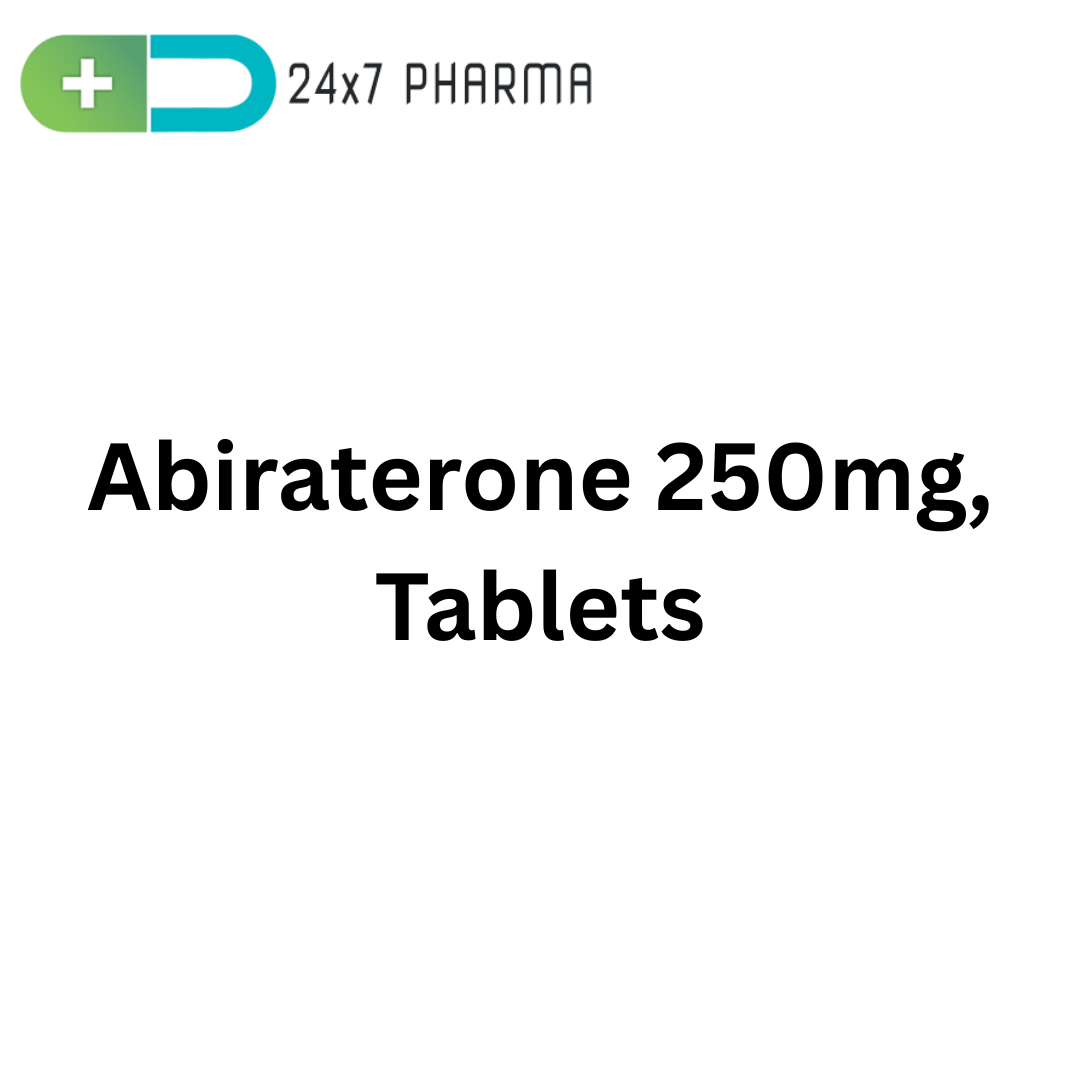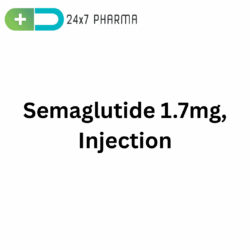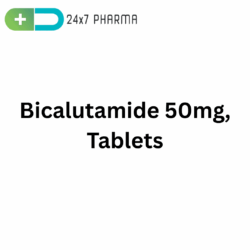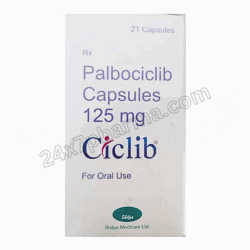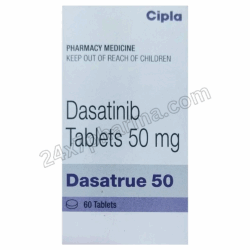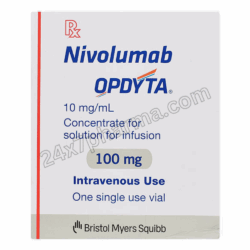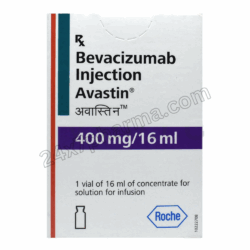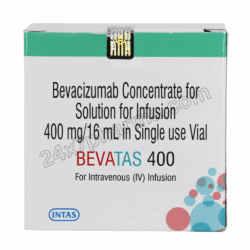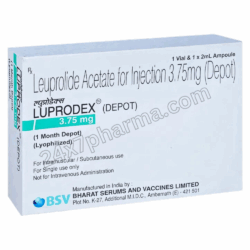Abiraxen 250mg, Abiraterone Tablets
Abiraxen 250mg is a prescription medication that contains Abiraterone Acetate, a drug used in the management of prostate cancer, specifically metastatic castration-resistant prostate cancer (mCRPC). It is part of the new generation of androgen biosynthesis inhibitors and represents a key advancement in the treatment of hormone-sensitive prostate cancer in men.
Abiraxen is typically used in combination with prednisone or prednisolone, and it works by interfering with androgen (male hormone) production, which prostate cancer cells rely on for growth and survival.
What is Abiraxen 250mg?
Abiraxen 250mg contains Abiraterone Acetate, a prodrug that gets converted into the active form, Abiraterone, in the body. It belongs to the class of androgen biosynthesis inhibitors, which help slow the progression of advanced prostate cancer.
Prostate cancer often continues to grow even when testosterone levels are lowered to very low levels (castration-resistant). Abiraterone blocks enzymes that produce testosterone outside the testes (i.e., in the adrenal glands and tumor tissue), effectively starving cancer cells of the hormone they need.
How Does Abiraxen Work? / Mechanism of Action
Abiraterone works by selectively and irreversibly inhibiting CYP17 (17α-hydroxylase/C17,20-lyase), a critical enzyme involved in androgen production in the testes, adrenal glands, and prostate tumor tissues.
This inhibition leads to:
- Decreased testosterone production.
- Reduced stimulation of androgen receptors in prostate cancer cells.
- Slower tumor progression.
Because Abiraterone blocks cortisol production as well, patients must take corticosteroids (usually prednisone) to prevent mineralocorticoid excess—a condition causing high blood pressure, fluid retention, and low potassium levels.
How to Use / Indications
Abiraxen is indicated for the treatment of:
- Metastatic Castration-Resistant Prostate Cancer (mCRPC) in adult men.
- Metastatic High-Risk Castration-Sensitive Prostate Cancer (mCSPC), in combination with androgen deprivation therapy (ADT).
- It is used in patients whose disease has progressed despite medical or surgical castration and is typically reserved for late-stage prostate cancer.
How to Take / Dosage
- Standard Dosage: The usual dose is 1,000 mg per day, which equals four 250 mg tablets taken orally.
- Abiraxen should be taken on an empty stomach—at least one hour before or two hours after a meal, as food increases absorption significantly and may increase the risk of side effects.
- It must be used in combination with prednisone (5 mg twice daily) to reduce the risk of side effects related to cortisol suppression.
- Tablets should be swallowed whole with water; do not crush or chew.
Other Dosage Forms / Strengths
While Abiraxen is typically available in 250 mg strength, newer formulations of abiraterone from other brands may offer:
- Abiraterone 500mg tablets: Designed to reduce the number of pills taken daily.
- For individuals who are unable to swallow pills, granules and suspension versions are available (rare).
- Always follow the prescribing physician’s recommendations regarding formulations and combinations.
Side Effects
Common side effects of Abiraxen include:
- High blood pressure (hypertension)
- Hypokalemia (low potassium levels)
- Fluid retention (swelling in hands/feet)
- Increased liver enzymes
- Fatigue
- Joint pain
- Hot flushes
- Urinary tract infections
Serious but less common side effects include:
- Adrenal insufficiency
- Liver toxicity
- Heart rhythm disturbances (QT prolongation)
- Bone fractures (especially when used long-term)
- Patients should undergo regular monitoring of liver function tests, blood pressure, electrolytes, and cardiac health during treatment.
Storage
- Store at a controlled room temperature between 20°C to 25°C.
- Keep the tablets in their original packaging, away from moisture and direct sunlight.
- Keep out of reach of children.
- Do not use expired medication or store in the bathroom due to humidity risks.
Benefits
- Improved overall survival in men with advanced prostate cancer.
- Delays cancer progression, improving quality of life.
- Oral administration makes it convenient for at-home treatment.
- Reduces the need for chemotherapy in certain patients.
- Often well-tolerated when monitored correctly.
- Abiraxen allows men to continue daily routines without the frequent hospital visits that intravenous chemotherapy may require.
Prescription
Abiraxen is a prescription-only medicine and should only be used under the guidance of a qualified oncologist or urologist. It is important that:
- The patient’s PSA levels, liver function, and adrenal hormones are checked before and during treatment.
- The drug is not started without confirming the patient is under adequate androgen deprivation therapy or has undergone surgical castration.
Interactions
Abiraxen can interact with multiple drugs:
- CYP3A4 inhibitors/inducers (e.g., ketoconazole, rifampin) can affect abiraterone levels.
- Digoxin and other cardiac glycosides: Risk of increased toxicity due to altered potassium levels.
- Warfarin: Increased bleeding risk.
- ARBs, ACE inhibitors, and diuretics: May make hypokalemia worse.
- Avoid grapefruit juice as it can interfere with CYP enzyme metabolism.
- Always provide a full list of current medications, supplements, or herbal products to the doctor before starting Abiraxen.
FAQs
Is Abiraxen a form of chemotherapy?
No. Abiraxen is not chemotherapy. It is a hormonal therapy that blocks androgen production.
Can Abiraxen cure prostate cancer?
No. Abiraxen does not cure cancer but helps control it and prolong survival in advanced stages.
Is monitoring required during treatment?
Yes. Liver function, blood pressure, potassium levels, and PSA must be regularly monitored.
Conclusion
Abiraxen 250mg (Abiraterone Acetate) is a crucial therapy for men with advanced or metastatic prostate cancer, offering improved survival and delayed disease progression. It is a targeted hormone therapy that works by blocking androgen production outside the testes, thus reducing the stimulus for cancer growth. When used with corticosteroids and under professional supervision, Abiraxen proves to be an effective and manageable option for late-stage prostate cancer patients.
However, like any potent medication, it requires strict adherence to dosage, ongoing monitoring, and awareness of potential side effects and interactions. Patients on Abiraxen often experience improved outcomes when therapy is initiated early in disease progression and managed with a multidisciplinary medical team.

